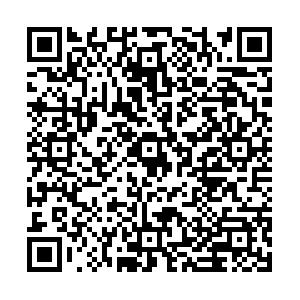行为经济学半个多世纪的演进:范式转换的历史轨迹
The Evolution of Behavioral Economics over Half a Century: The Historical Trajectory of Paradigm Shift
-
摘要: 老行为经济学向现代行为经济学的演变,本质上是一种新理论范式的形成过程。老行为经济学试图通过心理视角来诠释一些经济现象,但缺乏完整的独立的理论逻辑体系。现代行为经济学看似源于老行为经济学,却和其存在本质的区别。现代行为经济学继承了老行为经济学的心理视角的分析和相关的思想,但同时又不排斥新古典经济学,而是在新古典经济学的理论范式基础之上,引入人的社会性,从有限理性假定出发,构建完整的理论逻辑体系。这一理论体系和新古典经济学相比,理性和人性的假定不同,也就意味着理论内核出现了本质差异,从这个意义上说,现代行为经济学构建了属于自己的新范式,同时又兼容新古典经济学。这也是现代行为经济学能够对现有的经济学分支领域带来不同程度的变革的关键原因。Abstract: The evolution from old behavioral economics to modern behavioral economics is essentially the formation of a new theoretical paradigm. Old behavioral economics attempts to interpret some economic phenomena from a psychological perspective, but lacks a complete and independent theoretical logic system. Modern behavioral economics seems to originate from old behavioral economics, but it is fundamentally different from it. Modern behavioral economics inherits the analysis and related thoughts from the psychological perspective of the old behavioral economics, but does not reject the neoclassical economics at the same time. Instead, on the basis of the theoretical paradigm of neoclassical economics, it introduces human sociality, and constructs a complete theoretical logic system based on the assumption of bounded rationality. Compared with neoclassical economics, this theoretical system has different assumptions of rationality and human nature, which means that there are essential differences in the theoretical core. In this sense, modern behavioral economics has built its own new paradigm, which is also compatible with neoclassical economics. This is also the key reason why modern behavioral economics can bring different degrees of change to the existing branches of economics.
-
表 1 现代行为经济学与老行为经济学、新古典经济学的简要对比
现代行为经济学 老行为经济学 新古典经济学 硬核 有限理性假定,大脑的二元理性结构与偏好内生;个体的社会偏好与偏好的微观结构;价值函数与概率权重函数 认知过程与有限理性假说;人的行为受制于社会制度(正式制度和非正式的规范、习俗、文化等) 理性经济人假定;偏好和禀赋分布外生;个体可以简单加总成总体;主观价值论;交易关系为中心等 保护带 均衡或者非均衡;相对价值最大化 满意原则 均衡;效用最大化 方法论 方法论弱个体主义;可以有演化分析;重视实验室实验与实地实验方法 部分属于方法论整体主义,部分属于方法论个体主义。制度分析;演化分析;心理学实验方法 纯粹的方法论个体主义;边际分析方法 个体
决策个体的判断和决策受制于启发式、框架效应,根据参照点追求相对价值最大化;偏好的时间不一致性与行为跨期选择 个体或者群体在约束条件下追求满意结果 个体在约束条件下追求利益最大化(效用、利润或者福利最大化);偏好时间一致性与跨期选择 组织 理性有限和不对称下的参与人博弈 组织作为有机体,具有自组织特征,动态分析呈现为演化特征 理性经济人在信息不完全和不对称下的博弈 宏观 有限理性假说下的预期内生、个体行为加总与宏观总量变化 心理—预期—个体与群体行为—宏观结果 理性预期、个体行为加总与宏观总量变化 -

 点击查看大图
点击查看大图
计量
- 文章访问数: 5943
- HTML全文浏览量: 417

 下载:
下载: 
 沪公网安备 31010102003103号
沪公网安备 31010102003103号